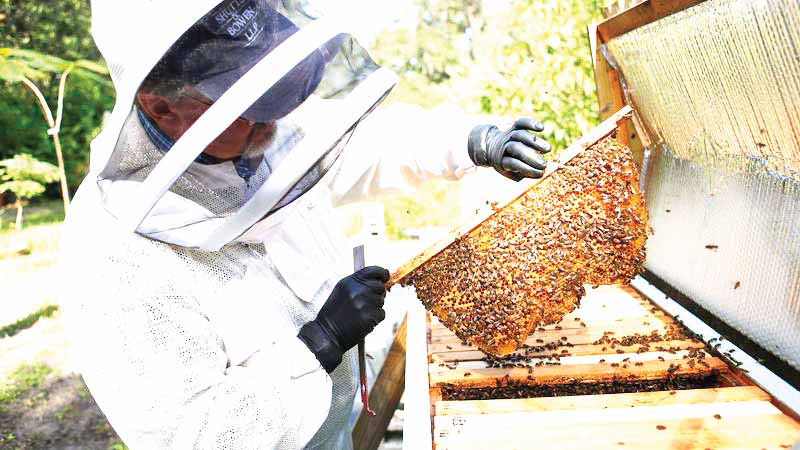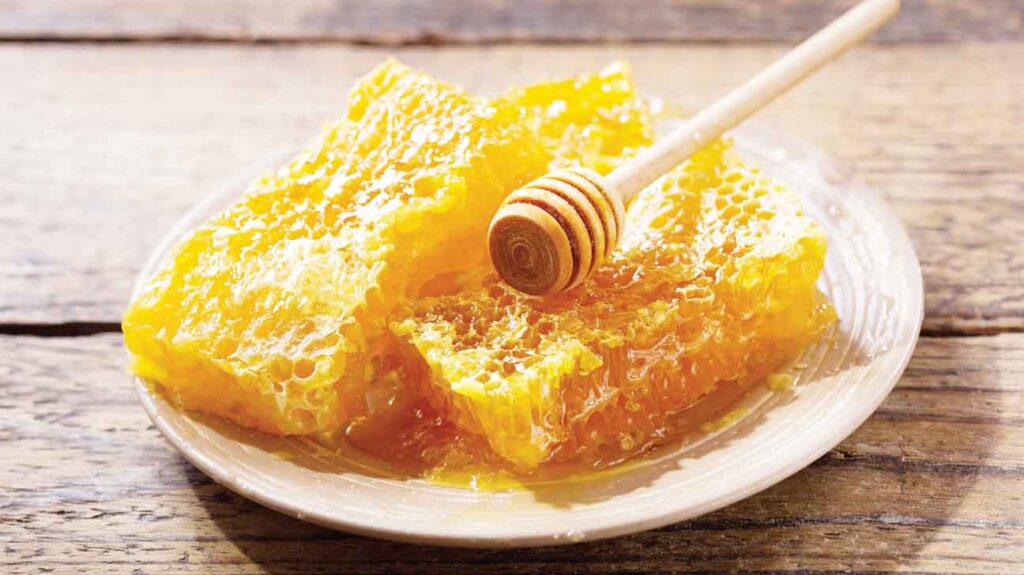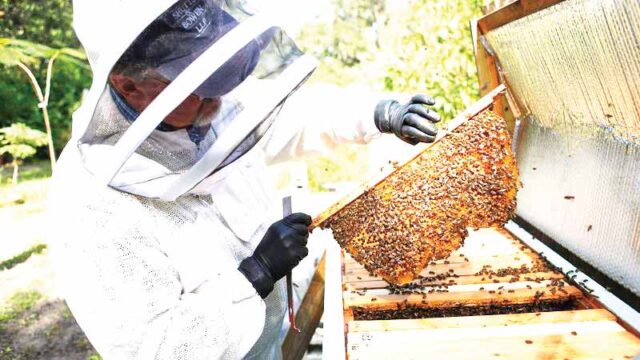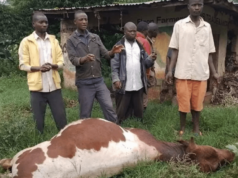By Agnes Kasemiire
Isaiah Tukora, a renowned bee and honey investor in Nsura village, Kyamukube town council in Bunyangabu district, loves bees because they give him honey and money.
“I sell 100kg of honey from the 40 colonized beehives and earn Shs 900,000 per season. This means in a year I pocket about Shs 1.8 million,” Tukora testifies.
He expects to harvest more honey once the remaining 20 beehives are also colonized.
Back ground
Tukora, who has been keeping bees for the last 40 years, acquired the farming skill from his late father.
“My father used to keep bees and after harvesting, he would give out honey to the neighbors to eat. But I learnt the skill then,” he says.
However, once Tukora ventured into beekeeping in 1991, he decided to take it beyond the subsistence farming his father practiced and focused on commercial bee keeping.
His start-up capital used to set up an apiary of five traditional bee hives was Shs 2,000 from his savings.
After three months, his bee hives were colonized and his first harvest was 40kgs which fetched him Shs 520,000 after selling each kilogram for Shs 13,000.
The proceeds came in handy for Tukora. He used part of the money to pay school fees for his children while the balance was invested back to grow the bee keeping project.

Achievements
Over the last 31 years, Tukora has expanded his bee farming venture from five traditional bee hives to over 50 hives.
Apart from the 40 colonized bee hives in Nsura village, Tukora bought land in Karugutu town council in Nkoroko district, where he has set up another apiary comprising of about 12 bee hives.
Life has become better for Tukora and he does not regret venturing in the beekeeping business.
He is now a beekeeping champion in his community who is training other bee farmers.
The handsome earnings from the business have enabled him to educate his children. His youngest child has just completed Senior Six.
In addition, he has also built a seven-bedroom permanent house for his family.
Bottlenecks
Tukora cites red beetles and rats that invade the hives and disturb the mechanism of the bees as his major challenges.
Often, some bees relocate, leaving the already colonized hives empty.
Additionally, the lacks safety gear such as bee-keepers suit and gumboots especially for his temporary; casual workers.
Bee-keeping tips
“Honey is not just the sweetest product, it gives sweet money,” Tukora says.
He reveals that apiary can be practiced from anywhere, in any space.
For starters, all you need are about five to 10 bee hives just like Tukora did.
Depending on where you get them, these can cost you between Shs 1 and Shs 2 million, if they are fully colonized.
If you do not have enough space, you can set up stands with each taking three to four hives.
To construct these wooden hives, you will spend less than Shs 100,000.
With these in place, the other requirements include a bee-keepers suit which costs about Shs 100,000.
This is worn by the beekeeper during harvesting. With about Shs 2.5 million one can start a modern apiary enterprise.
Bees have few predators and are not attacked by diseases so, you do not need to buy medicines for them.
A bee hive remains colonized as long as its structure is still sound. Fortunately, bees multiply and create new ones often.

Plans
Tukora plans to to buy more land and expand his beekeeping business to other districts such as Kasese.
He also wants to employ permanent workers to relieve him of the workload.
He advises that before taking on beekeeping or any farming practice, one should equip themselves with the necessary skills prior.






















